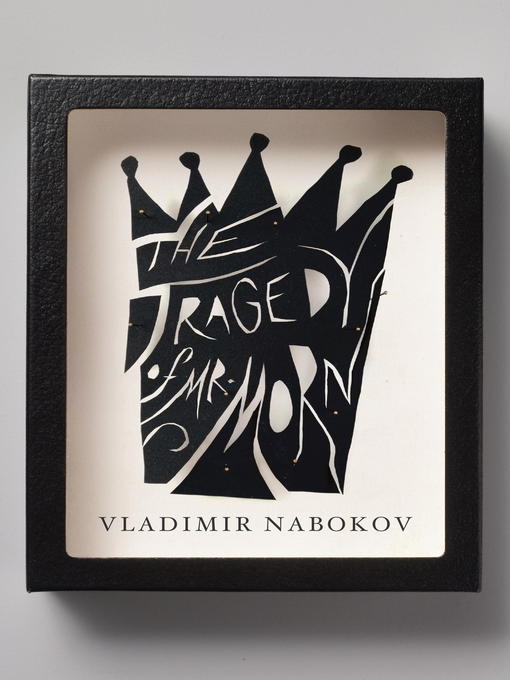
The Tragedy of Mister Morn
Vintage International
کتاب های مرتبط
- اطلاعات
- نقد و بررسی
- دیدگاه کاربران
نقد و بررسی

January 15, 2013
An early, recently unearthed play by the 20th-century master, heavily critical of politics and hinting at the brilliance to come. Nabokov (1899-1977) was living in Prague in 1923 when he wrote this play, rediscovered in 1997 and published in book form in Russia in 2008. But the communist revolution in his homeland is its key inspiration. Set in an unnamed country, the story tracks a tug of war for power: Tremens is the leader of a failed coup who wants the land reduced to ashes, and Mister Morn is the gentle but successful poet/leader who obscures his status as king. Shakespeare is Nabokov's model in a variety of ways. Most obviously, the play was written in iambic pentameter (attentively but not rigorously preserved by the translators). And its references to Othello, along with its themes of madness, leadership, family lines and how women support powerful men, show Nabokov took plenty of cues from the Bard of Avon. Admirers of Lolita, Pale Fire and Pnin have to work hard to detect glimpses of Nabokov's best-known work here, but it's not impossible: In his introduction, co-translator and Nabokov scholar Karshan explores how the play's references to masks and sex would re-emerge in Nabokov's mature novels. The dynamism of the play's romantic relationships makes it a firmly modernist work. Through Midia, the wife of an imprisoned revolutionary who's in love with Morn, he explores infidelity without high moral judgment. And in Ella, Tremens' daughter, he's imagined a vibrant, nervy woman quick to question her father's "equivocating little words." Morn's vagueness dulls the play's climax somewhat, but he's also the story's chief asset: "All my power lay in my mysteriousness," he proclaims in a final soliloquy, an apt line for a tale about the mysteriousness of power. A minor work in the overall Nabokov canon, but an intriguing riff on Elizabethan drama nonetheless.
COPYRIGHT(2013) Kirkus Reviews, ALL RIGHTS RESERVED.

July 1, 2013
The publication of this title is sure to make the hearts of Nabokov enthusiasts beat a little faster. Written between 1923 and 1924 when he was 24, this play was never performed or published during the author's lifetime (1899-1977). It first saw the light of day in a Russian edition published in 1997; this translation is its first appearance in English. Karshan's introduction assures readers that they may see, in the play, the literary beginnings of the novelist-to-be. This five-act piece addresses, in a fantastical way, the nihilism of the Russian Revolution. Its characters speak in iambic pentameter, with enough pauses (indicated by ellipses) to populate a new Harold Pinter play. The text lies rather flatly on the page and does not eagerly engage the reader. On the stage, though, with all the tricks available to an ambitious director, crew, and cast, it has a chance at being charming and accessible. VERDICT Necessary in order to complete the Nabokov collection but of secondary importance otherwise. Those seeking new monologs for auditions or competitions will find it useful.--Larry Schwartz, Minnesota State Univ. Lib., Moorhead
Copyright 2013 Library Journal, LLC Used with permission.

























دیدگاه کاربران